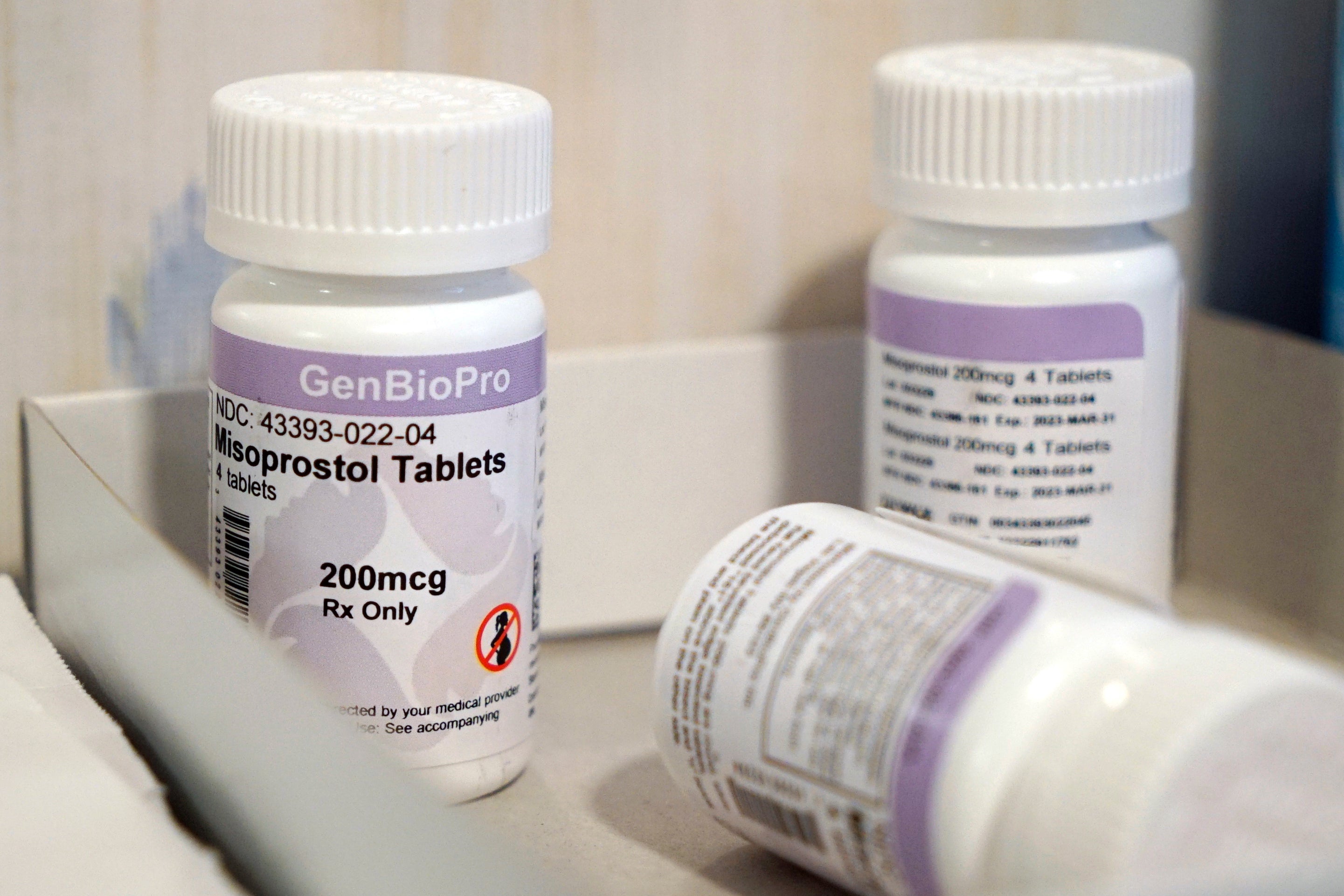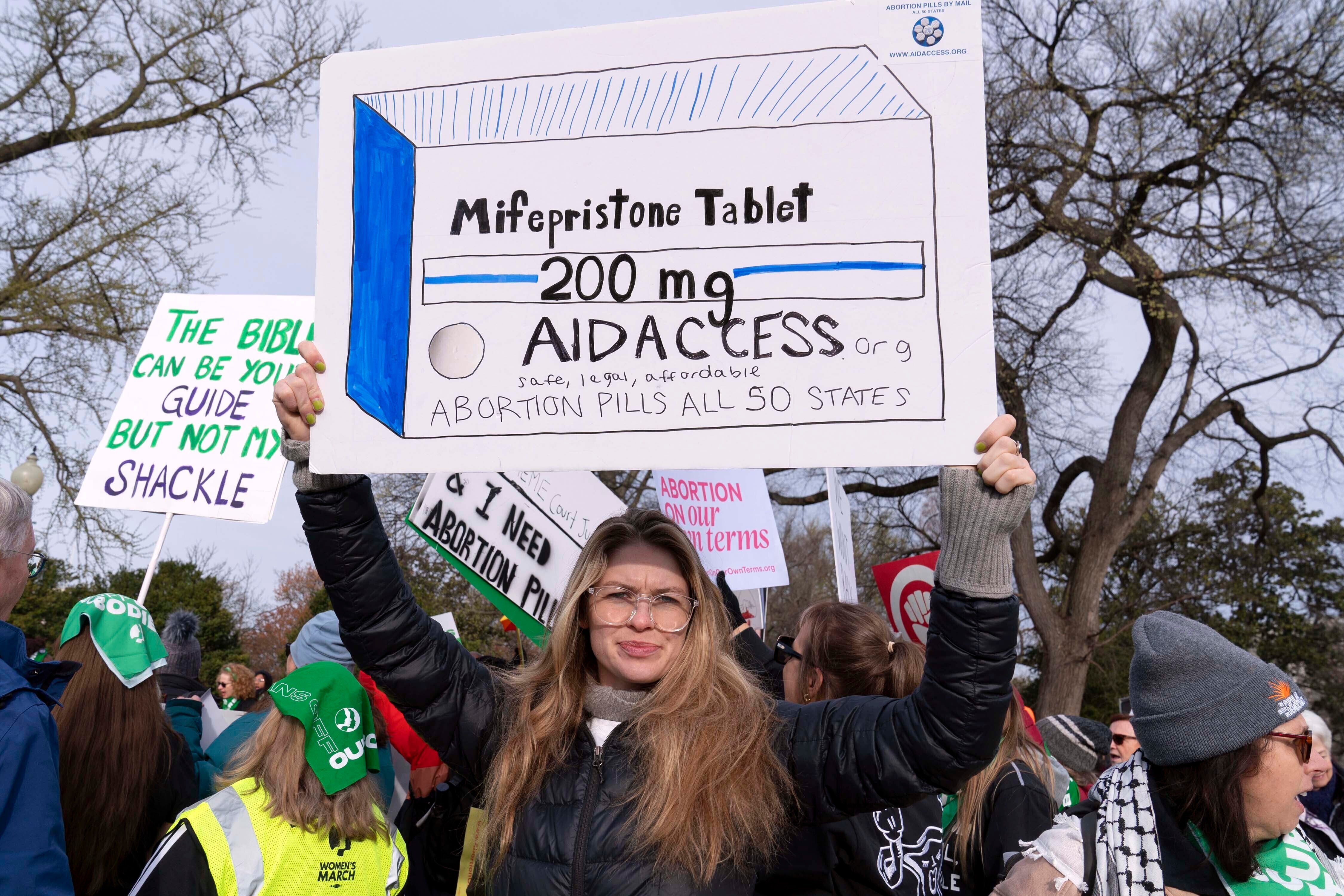Louisiana is about to become the first state to criminalize widely used abortion drugs
Abortion patients could face jailtime for possession of mifepristone and misoprostol
Your support helps us to tell the story
From reproductive rights to climate change to Big Tech, The Independent is on the ground when the story is developing. Whether it's investigating the financials of Elon Musk's pro-Trump PAC or producing our latest documentary, 'The A Word', which shines a light on the American women fighting for reproductive rights, we know how important it is to parse out the facts from the messaging.
At such a critical moment in US history, we need reporters on the ground. Your donation allows us to keep sending journalists to speak to both sides of the story.
The Independent is trusted by Americans across the entire political spectrum. And unlike many other quality news outlets, we choose not to lock Americans out of our reporting and analysis with paywalls. We believe quality journalism should be available to everyone, paid for by those who can afford it.
Your support makes all the difference.Louisiana is set to be the first state in the US to criminalize possession of widely used abortion drugs, with a bill that has alarmed abortion rights advocates and doctors across the state and drawn warnings from the White House.
State lawmakers have approved a bill to label mifepristone and misoprostol – drugs used in a two-drug protocol for medication abortion, the most common form of abortion care in the US – as controlled dangerous substances, in a category alongside Xanax and Valium.
Possession of the FDA-approved drugs without a prescription, in a state where abortion is already effectively outlawed altogether, could carry a penalty of 10 years in prison.
Louisiana’s Republican-controlled state Senate passed the measure by a vote of 29-7 on Thursday. The state’s GOP-controlled House overwhelmingly approved the bill on Tuesday.
Republican Governor Jeff Landry has indicated he will sign the bill into law.
A letter signed by more than 250 obstetrician-gynecologists, emergency room doctors and physicians from across the state urgently warned the bill’s author that, if signed into law, the measure would severely impact women’s healthcare in the state and delay potentially life-saving treatment.
Vice President Kamala Harris has called the legislation “absolutely unconscionable.”

The bill, drafted by anti-abortion group Louisiana Right to Life and sponsored by Republican state senator Thomas Pressly, will “assist law enforcement in protecting vulnerable women and unborn babies,” according to a statement from Mr Pressly.
Mifepristone was first approved for use by the US Food and Drug Administration in most cases up to 10 weeks of pregnancy in 2000, when a vast majority of abortions occur, according to the US Centers for Disease Control and Prevention. Medication abortions account for roughly 54 percent of all abortions in the US, according to reproductive health group Guttmacher Institute.
The drug is also used to treat miscarriages. Roughly 10 percent of clinically recognized pregnancies end in miscarriages, according to the American College of Obstetricians and Gynecologists.

The drug blocks the hormone progesterone, which helps support the uterus. A healthy uterine lining supports a fertilized egg, embryo and fetus. Without progesterone, the uterus will expel its contents.
Roughly 24 to 48 hours after a patient takes mifepristone, the patient then takes misoprostol, which helps empty the uterus. Misoprostol-only medication abortions are also common.
In June 2022, the US Supreme Court revoked a constitutional right to abortion by reversing the decades-long precedent held in Roe v Wade. In the months that followed, more than a dozen states moved to outlaw abortions in nearly all circumstances.
The nation’s high court is expected to make a decision in another abortion rights case within the coming weeks that will determine whether to strip the government’s approval of mifepristone.
That decision could devastate abortion and miscarriage care across the US, including in states where abortion access is legally protected, and potentially open the door for other activist-driven challenges to other life-saving drugs, according to abortion rights advocates.

Join our commenting forum
Join thought-provoking conversations, follow other Independent readers and see their replies
Comments